Dr. Siegel: A one-size-fits-all health care system could be 'apocalyptic'
Fox News senior medical contributor reacts to Kamala Harris' health care agenda as a new report warns Britain's universal health care system is in 'critical condition.'
Hair loss can be a frustrating byproduct of aging.
About 70% of men will lose hair as they age, while half will experience hair loss by age 50, according to Cleveland Clinic.
Approximately 80% of cases of male pattern baldness are due to genetic factors, studies have shown.
Among women, up to 40% will have noticeable hair loss by age 50, UCLA Health reported.
Hair loss can be a factor in mental health struggles, research has shown.
A 2022 study found that adults with alopecia areata (an autoimmune disease that causes hair loss) were up to 38% more likely to experience clinical depression, according to the National Alopecia Areata Foundation.
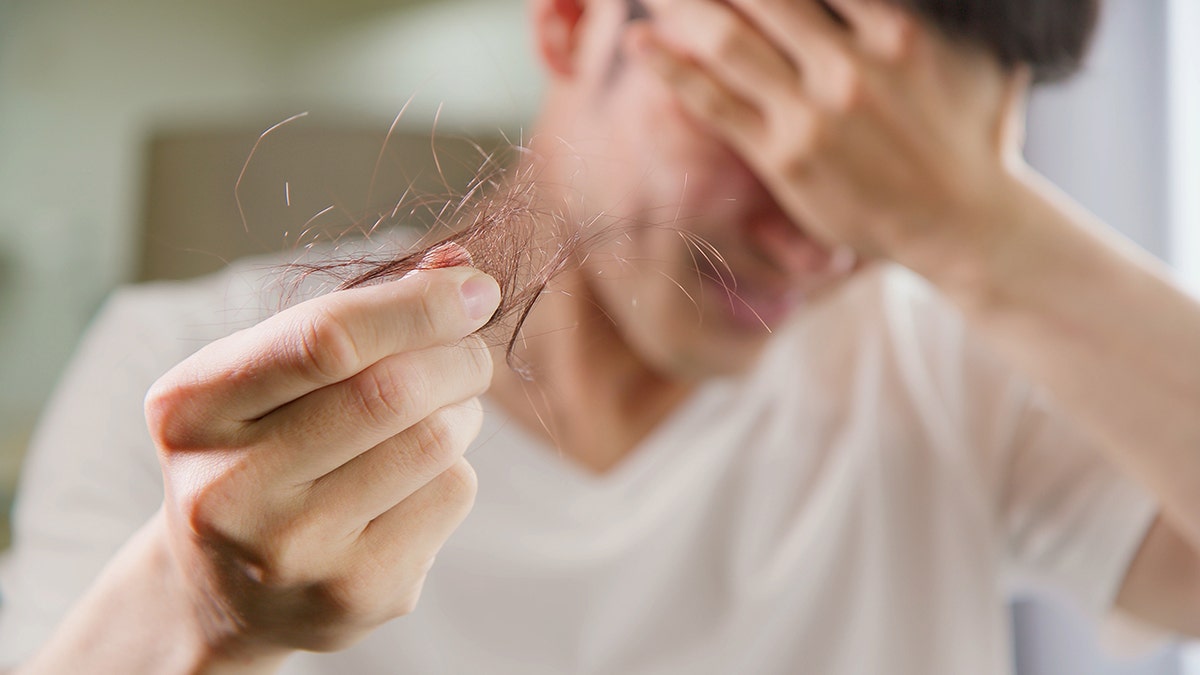
Jimmy Sung, MD, told Fox News Digital "finding a specialist who focuses on evidence-based hair restoration and regeneration is essential." (iStock)
For those looking to minimize and prevent balding, the following five treatments could be helpful, experts say.
1. Minoxidil
Manhattan-based dermatologist Dr. Brendan Camp, MD, recommends starting with the over-the-counter topical minoxidil, which does not require a prescription.
"It is thought to help keep hair in the growing phase, also known as anagen," he told Fox News Digital.
HAIR LOSS AND PROSTATE MEDICATION COULD ALSO REDUCE HEART DISEASE RISK, STUDY FINDS
It is important to prevent the topical form of minoxidil from dripping onto the face, Camp warned, as it can promote hair growth in unwanted areas.
Oral minoxidil was also recommended as an off-label treatment for hair loss. This version of the medication does require a prescription.

"In men with male pattern hair loss, it is important to use a DHT blocker combined with something like minoxidil to improve blood flow to the scalp," a doctor said. (iStock)
The medicine is normally prescribed to treat high blood pressure, according to Camp, but one of its side effects is hair growth.
HAIR LOSS AND PROSTATE MEDICATION COULD ALSO REDUCE HEART DISEASE RISK, STUDY FINDS
"Minoxidil is prescribed at low doses to treat hair loss to take advantage of this side effect and promote hair growth," Camp said.
2. Oral finasteride
Oral finasteride is an FDA-approved treatment for male androgenetic alopecia, which is also known as male pattern baldness, Camp said.
Finasteride works by limiting the formation of a hormone called DHT, which is responsible for hair shrinkage and hair loss, the doctor said.
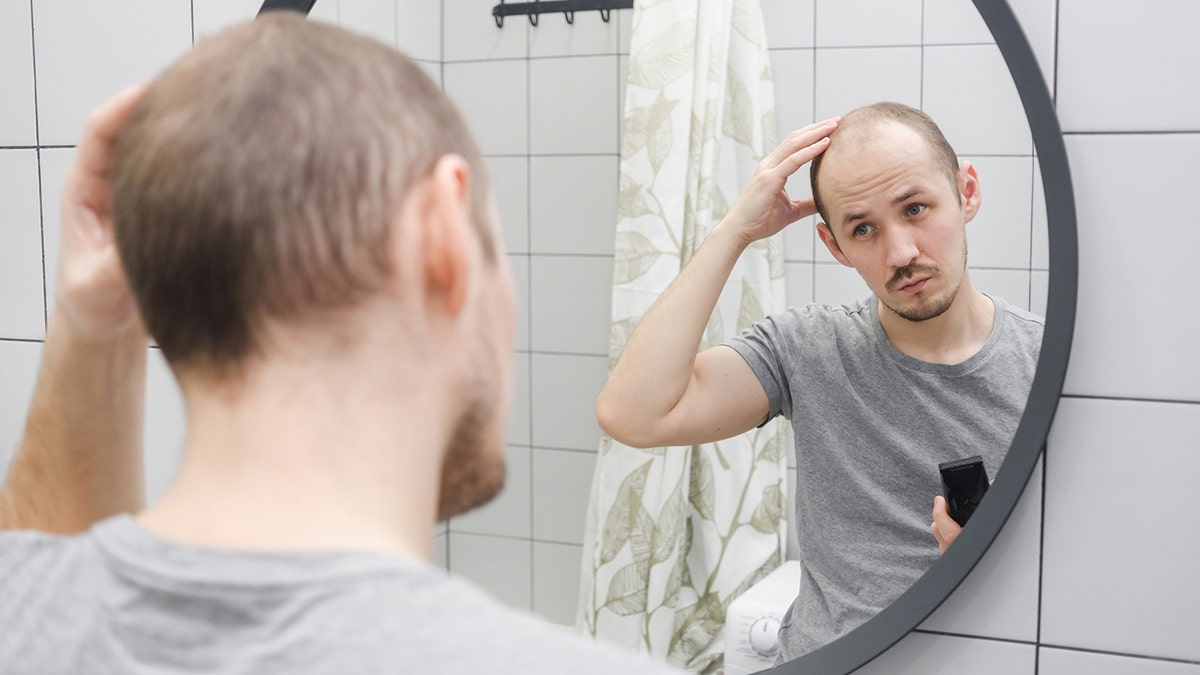
Minoxidil and finasteride are both effective and have an "established track record in treating hair loss," a doctor said. (iStock)
Las Vegas dermatologist Dr. Candace Spann, MD, the creator of ReTress, a hair care formula for women experiencing hair loss, echoed the importance of targeting DHT with a blocker to "improve blood flow to the scalp" and boost hair growth in men.
Jimmy C. Sung, MD, board-certified plastic and reconstructive surgeon and medical director of Tribeca Aesthetics in New York City, agreed with Spann and Camp that minoxidil and finasteride are both effective and have an "established track record in treating hair loss."
3. Platelet-rich plasma (PRP)
Platelet-rich plasma (PRP) is a treatment administered in a medical provider's office, where a patient’s blood is drawn and spun to separate the plasma from the red blood cells, according to Camp.
MAXIMIZE HAIR GROWTH WITH THESE OILS THAT CAN EASILY BE ADDED TO YOUR DAILY SELF-CARE ROUTINE
The plasma, which is rich in platelets and "growth factors," is then injected into the scalp to "improve hair density and caliber," he said.
PRP has also been used for wound healing in trauma and joint injuries, according to Johns Hopkins Medicine, but has been gaining popularity in addressing male pattern baldness and stimulating the growth of hair transplants.
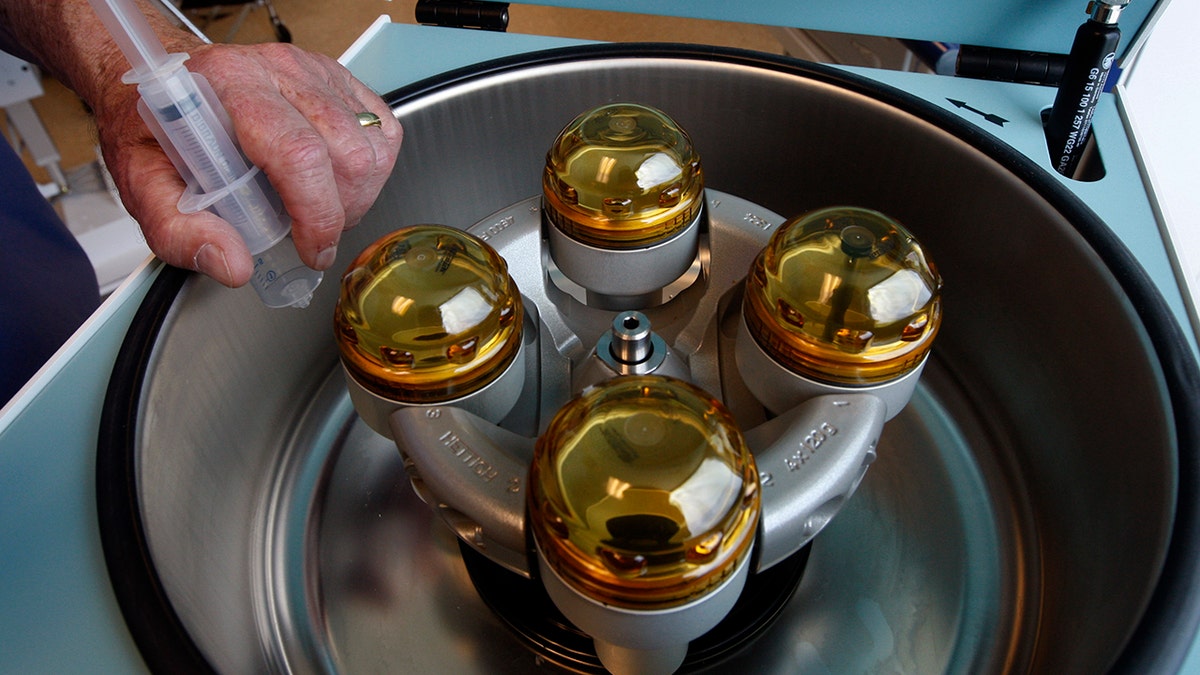
PRP is a treatment administered in-office, where a patient’s blood is drawn and spun to separate the plasma from the red blood cells. (Paul Chinn/The San Francisco Chronicle via Getty Images)
Results are most noticeable six months after the scalp injections. The procedure is not permanent, and additional injections may be needed, experts say.
Sung called hair transplants an "excellent solution for hair restoration for patients who are good candidates and looking for long-term solutions."
NEW PROSTATE CANCER MEDICATION ‘SHOWS PROMISE’ IN TREATING AGGRESSIVE DISEASE, STUDY FINDS
"Platelet-rich plasma injections enhance hair transplant results and benefit some non-transplant patients," he told Fox News Digital.
4. Saw palmetto
An alternative treatment for hair loss, saw palmetto is a plant-based, over-the-counter supplement.
"Saw palmetto is thought to reduce the amount of DHT hormone that contributes to hair loss," Camp said.

Saw palmetto, a palm native to the southeastern U.S., is commonly used in supplements to "improve prostate health, balance hormone levels and prevent hair loss in men," according to Healthline. (DeAgostini/Getty Images)
"The evidence behind the use of saw palmetto as an effective treatment for hair loss is limited, and OTC supplements are not FDA-regulated," he noted.
A 2020 study published by the National Institutes of Health noted a 60% improvement in overall hair quality among patients experiencing hair loss who used various oral and topical saw palmetto products.
CLICK HERE TO SIGN UP FOR OUR HEALTH NEWSLETTER
The study also found that 27% of participants saw improved total hair count, 83% reported increased hair density and 52% said the hair loss stopped progressing.
5. Scalp treatments and vitamin therapy
Treating hair loss in both men and women is a "multifaceted approach," Spann said, involving the treatment of other issues like low vitamin D or scalp inflammation.
For more Health articles, visit www.foxnews/health
"Treating female pattern hair loss is more complicated, because it requires addressing all underlying causes," she told Fox News Digital.
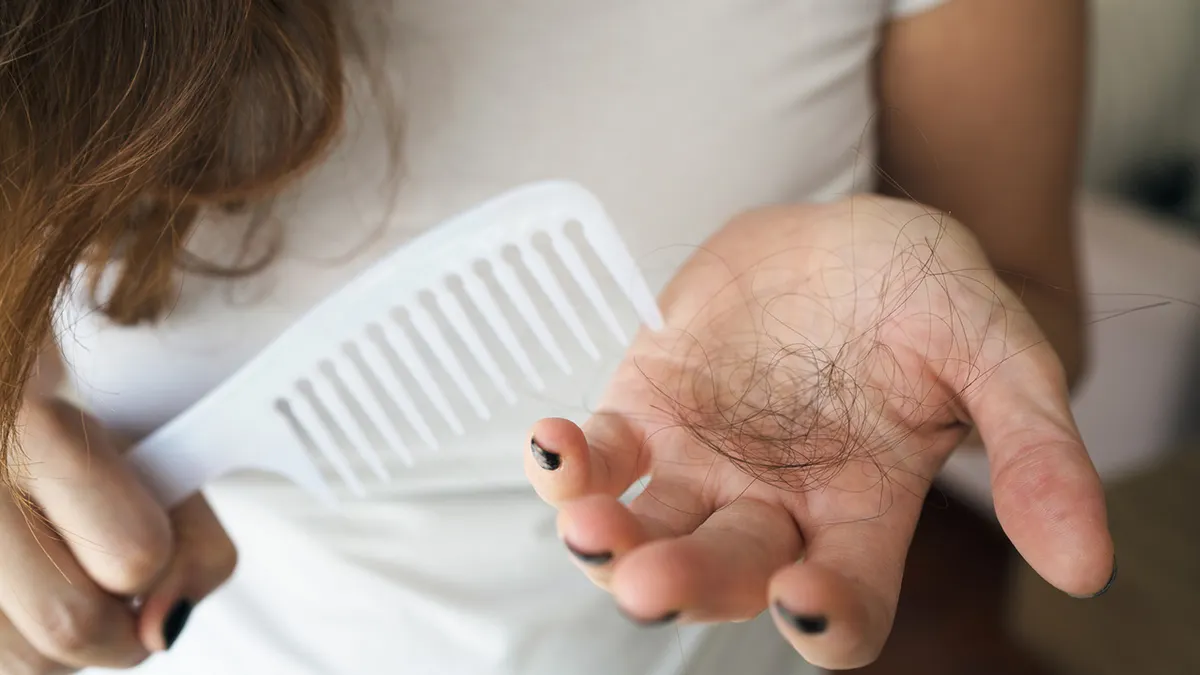
Treating women's hair loss is "more complicated," a dermatologist said. (iStock)
"It is crucial to improve blood flow to the scalp, calm scalp inflammation and correct underlying vitamin deficiencies."
Those experiencing scalp inflammation, or scalp folliculitis, should see a board-certified dermatologist to identify the cause of the condition and determine the proper treatment.

Some cases of scalp inflammation can be remedied at home with a warm compress, antibiotic ointment, antihistamines, or an antifungal or anti-dandruff shampoo. (iStock)
Some cases can be remedied at home with a warm compress, antibiotic ointment, antihistamines, or an antifungal or anti-dandruff shampoo, according to the Valley Skin Institute website.
In some cases, however, the condition may require prescription-strength medication.
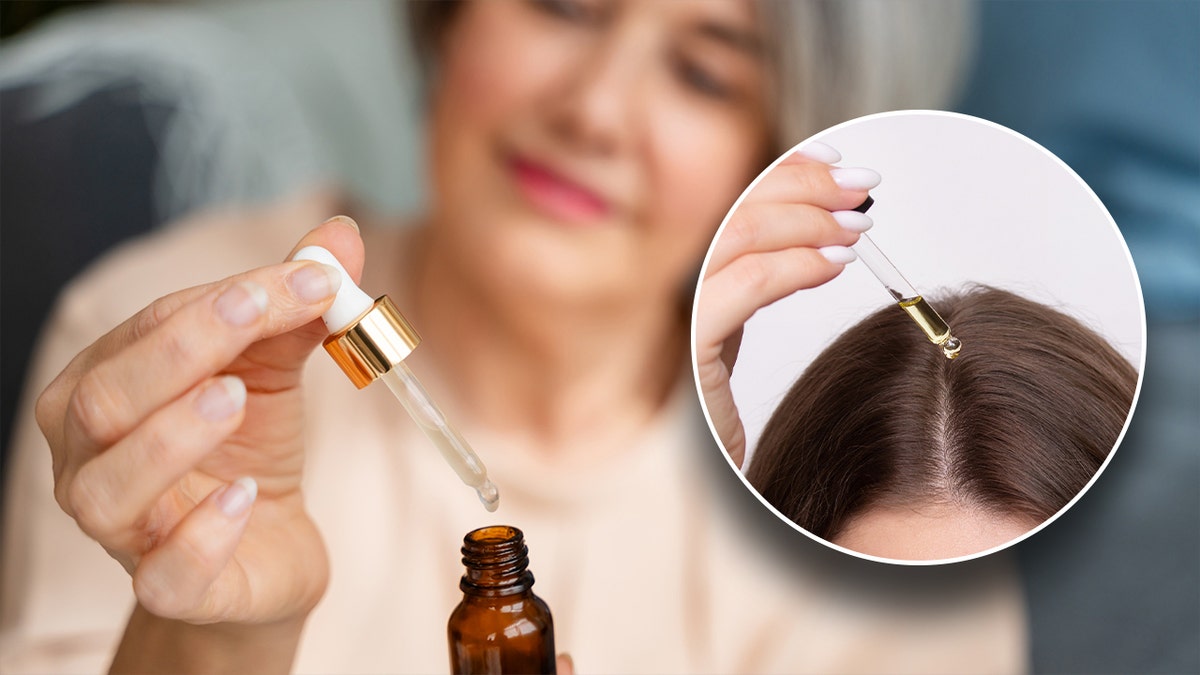
A 2020 study published by the National Institutes of Health noted a 60% improvement in overall hair quality among patients experiencing hair loss who used various oral and topical saw palmetto products. (iStock)
"It is also important to correct iron deficiencies, low iron stores and low vitamin D levels," Spann added.
Many vitamins and minerals play a role in healthy hair growth, according to Harvard Health.
Some of these include vitamins A, B2 (riboflavin), B3 (niacin), B7 (biotin), B9 (folate), B12, C, D and E, as well as iron, selenium and zinc.
CLICK HERE TO GET THE FOX NEWS APP
"Consuming adequate vitamins and minerals is important to preventing and managing hair loss," states the Harvard Health website. "Most people can cover all their nutritional needs through a healthy, balanced diet."
Those who have questions about choosing the right hair loss treatment should consult a medical provider, experts recommend.











































